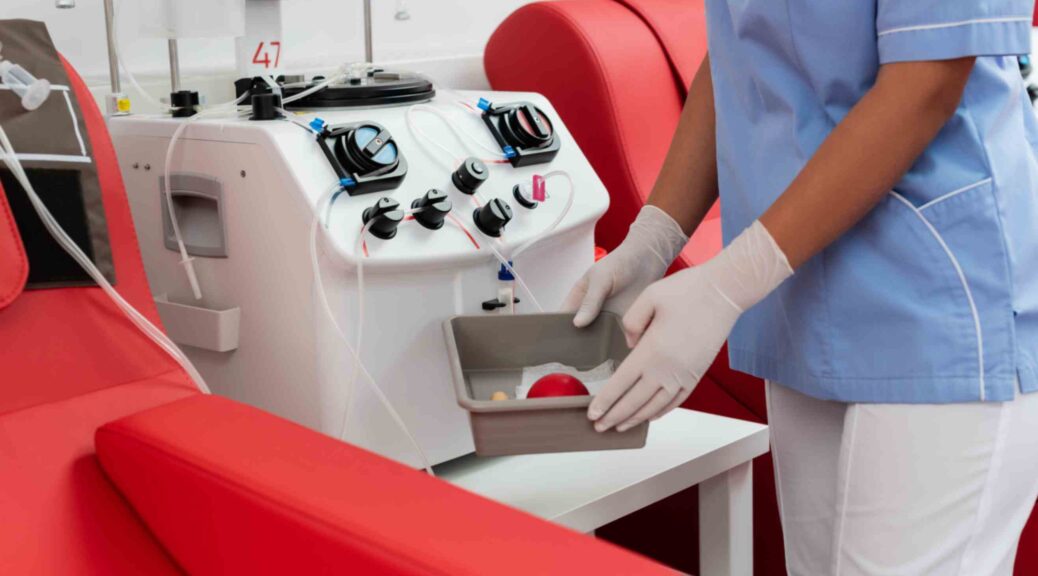
Dialysis: Types, Procedure & How It Works
Dialysis is one of the well-renowned terms in medical science that serves as a substitute for the impaired function of the kidney. The problems include kidney failure and renal insufficiency. It also plays a very crucial role in the management of end-stage renal disease. Dialysis maintains the overall health conditions and well-being of a person.
In this blog, we’ll guide you through the various types of dialysis, the procedure which is involved, and its action to support the function of the kidney. For the best dialysis in Agartala, you can contact ILS Hospitals Agartala.
Procedures of Dialysis
Dialysis is an important medical treatment that performs an essential function of the kidneys. First, it filters waste products and excess fluids from the blood when the kidneys are unable to perform such. Generally, there are two types of dialysis – hemodialysis and peritoneal dialysis.
1. Hemodialysis
Hemodialysis is one of the most common types of dialysis that is typically performed in a dialysis clinic or hospital. The process is conducted by removing blood from the body through a vascular access point such as an arteriovenous fistula or graft. After that, it is circulated through a dialysis machine. Within the machine, the blood passes through a filter called a dialyzer. It removes the waste products and excessive fluids before returning purified blood to the body.
The process lasts for about three to four hours and it is typically performed three times per week. The process of hemodialysis requires careful monitoring with the help of trained medical professionals. It can ensure the safety and effectiveness of the treatment.
2. Peritoneal Dialysis
Peritoneal dialysis is another alternative form of dialysis that can be performed at home by the patient. It also includes the use of the peritoneal membrane which is the thin lining surrounding the abdominal cavity. The procedure acts as a natural filter for waste removal. During the peritoneal dialysis, a sterile solution called dialysate is inserted into the abdominal cavity through a catheter. The dialysate draws waste products and extra fluids from the bloodstream into the abdominal cavity. After that, it is drained out of the body.
Peritoneal dialysis can be executed and performed continuously throughout the day or while the patient is sleeping. This is a very flexible process and this flexible process allows the patient greater independence and convenience for patients compared to hemodialysis. The dialysis which is performed throughout the day is called continuous peritoneal dialysis and the one which is carried out throughout the sleep cycle is called automated peritoneal dialysis.
How Dialysis Works
Both the procedure hemodialysis and peritoneal dialysis function are available in Agartala ILS Hospital. These procedures are the principle of diffusion and osmosis for removing waste products and extra fluids from the bloodstream.
1. Diffusion
Diffusion is an important process by which solutes such as waste products move from an area of higher concentration to an area of lower concentration. It moves through a semipermeable membrane. In hemodialysis, blood flows through hollow fibers within the dialyzer allowing the waste products to diffuse into the dialysate. A similar thing happens with the process of peritoneal dialysis in which the waste products diffuse from the bloodstream into the dialysate in the abdominal cavity.
If you are looking for the best treatment under a board-certified doctor then you should visit Agartala ILS Hospital as it has one of the best dialysis in Agartala. It is also renowned as one of the best nephrology hospitals in Agartala.
2. Osmosis
Another process of dialysis which is done is called osmosis. It includes the movement of water across a semipermeable membrane from an area of lower solute concentration to an area of higher solute concentration.
In the dialysis process, osmosis helps to remove extra fluid from the bloodstream by creating a concentration gradient within the blood and dialysate compartments. This is an important process that helps to regulate fluid balance in the human body and prevent the overload of fluid.
ILS Hospital is also known as the best urology hospital in Agartala.
Final words
Dialysis is a very vital treatment option for patients with kidney failure, providing a lifeline to those who are unable to perform the important function of kidneys. Whether through hemodialysis or peritoneal dialysis, the procedure plays a very crucial role in managing renal disease. It also seeks to improve the quality of life of patients. By understanding the types available one can contact the best multispeciality hospitals in Agartala for making informed decisions. Moreover, this knowledge is very important to gain knowledge. It also equips them with tools that are necessary to navigate the complex factors of managing renal insufficiency. It fosters a proactive approach towards optimizing overall health and well-being.
FAQs(Frequently Asked Questions):-
Q1. Why is dialysis important?
Dialysis is very important for patients who have undergone kidney failure, or renal insufficiency for filtering out their blood.
Q2. What are the different types of dialysis?
There are generally two types of dialysis – hemodialysis and peritoneal dialysis.
Q3. How often is dialysis performed?
Dialysis can be performed multiple times a week depending on the condition of the patient.
Q4. What are the advantages of peritoneal dialysis?
Peritoneal dialysis provides greater flexibility and independence as it can be performed in the home by the patients.
Q5. Are there any risks associated with dialysis?
As dialysis is safe and effective, there are some potential risks and complicated factors. Risks like infections, blood clots, and changes in blood pressure can happen if you undergo dialysis.










